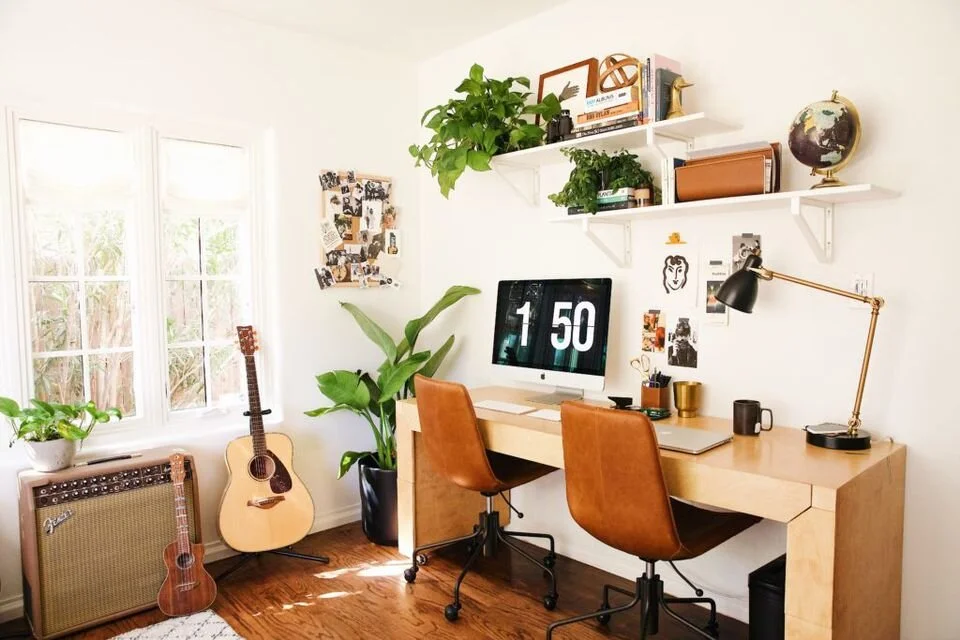5 Tips for Staying Sane When Working From Home
Post Author: Spencer Scott, Psy.D.
The current COVID pandemic has fundamentally shifted how many of us are working and living. What originally started as 2 weeks of social distancing will now likely be more like 8 weeks in Los Angeles County. While the past month may have been about “adjusting” the new circumstances of isolation, the next month will be about “maintaining” our sense of wellness. Many of us are working from home, which presents new challenges for our identities, our boundaries, and our sense of balance.
Here are 5 tips you can use to stay sane when working from home:
1. Maintain a Sense of Normalcy
It’s hard to feel happy and productive if you’re going to bed at 3AM, waking up at noon, and throwing the same sweat pants and t-shirt you wore yesterday. Try your best to keep the schedule you were on before COVID-19, going to bed and waking up at reasonable times. Try putting on clothes that make you feel confident in your appearance—what outfit would you pick for a first date or for your presentation at work?
2. Maintain a (very short) Commute:
Behavioral theories of psychology would suggest that our minds have 365 opportunities per year to associate various rooms in our house with various activities. Our bed should send a signal to our brain that it’s time to start winding down and preparing for sleep, our dining table should send a signal that we’re hungry and about to eat, and our couch should send the signal that it’s time to relax and watch a movie. That’s why it’s important that you have a separate workspace that you “commute” to and from each day, even if that commute is only a few steps. It can be a guest room, a back patio, or even a corner of your kitchen. Apartment Therapy has a ton of great articles on designing a home office in a small space, keeping organized, and so much more.
3. Maintain Boundaries With Roommates
Maybe your “roommate” is your rambunctious kid, a partner who wants you to spend your day entertaining them, or in my case a cat named Scout who loves to lay on my keyboard. It’s important you maintain the boundaries necessary for you to work effectively. Try asking your partner to take the kids on a long walk through the neighborhood while you take the conference call, or filling a Kong toy with peanut butter to keep your dog preoccupied in the other room. Try not to overthink your approach, these times call for temporary and imperfect solutions. The key here is to effectively communicate your needs for quiet time to the other people in your life, and collaborate with them on finding a work-around.
4. Maintain Boundaries with Your Time
Think back to January and February of this year, you likely felt as if you were spread too thin, with not enough time in your day to accomplish everything you had planned. Now the opposite is true, with an abundance of time on your hands and too few places to go with too little to do. It’s easy to let “work time” and “personal time” bleed together, responding to emails late at night, or watching Netflix at 11am when you know that you have a list of work tasks waiting to be done. Try creating a work schedule for yourself like the example below. If you’re sticking to a schedule but still struggling to focus, use your phone’s stopwatch for the Pomodoro Technique.
Wake up, get dressed, and make breakfast.
Enjoy breakfast on your balcony or at in the park down the block.
“Desk time”: Try working from 10am-Noon
Have lunch, maybe call a friend
“Desk time”: Try working again from 1pm-3pm
Stretch your legs and rest your eyes. Take a walk around the neighborhood.
“Desk time”: Finish up any last work tasks from 4pm-5pm
At 5pm, close your laptop and put it in a different room or in your desk drawer to prevent any temptation to keep working.
Enjoy your evening, cook dinner, FaceTime a family member, watch a movie, etc.
Relax with some gentle stretching or restorative yoga, then go to bed at a decent time.
5. Finally (and most importantly!), Maintain Self-Compassion
Social distancing is not normal. Humans were evolutionarily designed to live in groups, maintaining cooperative relationships with one another for survival. You’re currently living through an abnormal situation, so how can you expect your normal level of focus, productivity, and efficacy? Be gentle with yourself during this time. It’s OK that not everything gets done. It’s OK that things will slip through the cracks. It’s OK that deadlines may be missed. Just try to do your best and let that be “good enough for now.”




